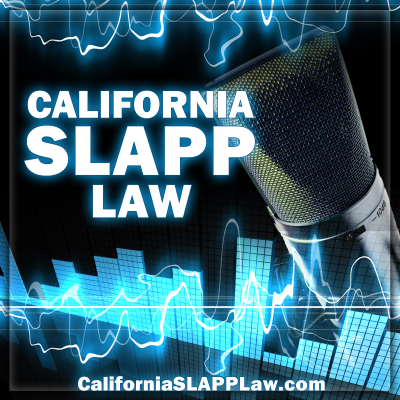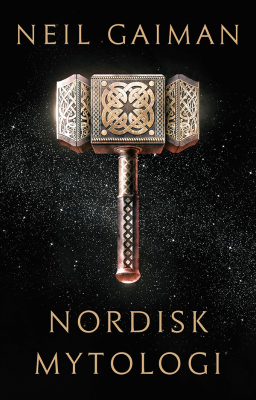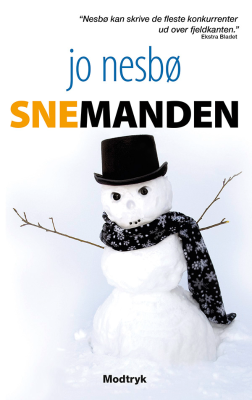
California SLAPP Law
engelsk
Uddannelse
Begrænset tilbud
2 måneder kun 19 kr.
Derefter 99 kr. / månedOpsig når som helst.
- 20 lydbogstimer pr. måned
- Podcasts kun på Podimo
- Gratis podcasts
Læs mere California SLAPP Law
Anti-SLAPP Motions and SLAPP-back Actions
Alle episoder
62 episoderSLAPP035 – Understanding the Public Interest Requirement
[https://i0.wp.com/californiaslapplaw.com/wp-content/uploads/2023/02/California-SLAPP-Law-Cover-1400-1-300x300-1.jpg?resize=300%2C300&ssl=1] In Episode 35 of the California SLAPP Law Podcast, we take a deep dive into what constitutes a matter of public interest under the anti-SLAPP statute. It is apparent from the motions we are defeating that counsel is sorely lacking an understanding of this important point. As was held in the Supreme Court case of FilmOn v. DoubleVerify, it’s not enough to simply point to some amorphous matter of public interest. The challenged speech must be “closely related” to that public interest, AND it must somehow “advance the discussion” on the public interest. We also discuss the craziest appeal Morris & Stone has ever faced. The defendant’s anti-SLAPP motion was denied, but only because of a procedural snafu. The patient Judge denied the motion without prejudice, and invited opposing counsel to refile the motion. No harm, no foul. So why did the attorney instead file an appeal? And is the denial of an anti-SLAPP motion even appealable when it was denied without prejudice? Listen to Episode 35 for the answers. The post SLAPP035 – Understanding the Public Interest Requirement [https://californiaslapplaw.com/2025/04/slapp035-understanding-the-public-interest-requirement/] appeared first on California SLAPP Law [https://californiaslapplaw.com].
SLAPP034 – Are Calls to the Police Still Protected Speech?
[https://i0.wp.com/californiaslapplaw.com/wp-content/uploads/2023/02/California-SLAPP-Law-Cover-1400-1-300x300-1.jpg?resize=300%2C300&ssl=1] In Episode 34 of the California SLAPP Law Podcast, we examine the amendment to Civil Code section 47, which changed calls to the police from being absolutely privileged, to only conditionally privileged. Attorneys who sue for calls to the police, do so at their peril, as opposing counsel learned. And we are happy to report that Morris & Stone created a new legal precedent, having to do with what we have long referred to as “all-or-nothing” anti-SLAPP motions. In Baral v. Schnitt, the California Supreme Court held that individual allegations of protected speech can be stricken from a complaint. But what if a defendant brings an anti-SLAPP motion that asks only to strike the entire complaint? How should the court handle it, when the defendant then changes course, and asks in the reply brief for individual allegations to be stricken? Listen to Episode 34 for the answer. The post SLAPP034 – Are Calls to the Police Still Protected Speech? [https://californiaslapplaw.com/2024/04/slapp034-are-calls-to-the-police-still-protected-speech/] appeared first on California SLAPP Law [https://californiaslapplaw.com].
SLAPP033 – How to Defeat an anti-SLAPP Motion with Inadmissible Evidence
California SLAPP Law [https://i0.wp.com/californiaslapplaw.com/wp-content/uploads/2021/03/California-SLAPP-Law-Cover-1400-1.jpg?resize=300%2C300&ssl=1]https://media.blubrry.com/slapp/content.blubrry.com/slapp/California_SLAPP_Law_Podcast_Episode_33.mp3 In Episode 33 of the California SLAPP Law Podcast, we revisit the California Supreme Court decision of Sweetwater Union High School District v. Gilbane Building Co. Our client was sued by an attorney, and we had the action dismissed by way of an anti-SLAPP motion. The attorney appealed, and in his briefs, he never mentioned the Sweetwater holding, and we sure were not going to bring it up. The Court of Appeal brought it up anyway. Would the attorney be able to reverse the ruling, based on evidence that might be admissible at trial? We also discuss how sometimes the best thing to do is nothing. We were brought in to oppose an anti-SLAPP motion, but when the trial court kept continuing the hearing, I told the client, “wait for it, wait for it . . .” And I tell the tale of nice woman who ran afoul of the anti-SLAPP statute with her cross-complaint, and was faced with a massive attorney fee application. She could not afford to hire us, but a little guidance from the wings saved her from disaster. The post SLAPP033 – How to Defeat an anti-SLAPP Motion with Inadmissible Evidence [https://californiaslapplaw.com/2022/09/slapp033-how-to-defeat-an-anti-slapp-motion-with-inadmissible-evidence/] appeared first on California SLAPP Law [https://californiaslapplaw.com].
SLAPP032 – The 3 Most-Often Miscited Anti-SLAPP Cases
California SLAPP Law [https://i0.wp.com/californiaslapplaw.com/wp-content/uploads/2021/03/California-SLAPP-Law-Cover-1400-1.jpg?resize=300%2C300&ssl=1]https://media.blubrry.com/slapp/content.blubrry.com/slapp/California_SLAPP_Law_Podcast_Episode_32.mp3 We begin Episode 32 with the discussion of how Morris & Stone just defeated an anti-SLAPP motion. I reveal the common (and fatal) mistake made by defense counsel when they pursue anti-SLAPP motions. And on the topic of mistakes, based on my prior article [https://californiaslapplaw.com/2021/06/the-top-three-anti-slapp-cases-every-defense-attorney-cites-whether-they-apply-or-not/], we turn to the three cases that counsel almost always cite improperly when defending against an anti-SLAPP motion. Listen and find out what these three cases really stand for: Nguyen-Lam v. Cao (2009) 171 Cal.App.4th 858. Weinberg v. Feisel (2003) 110 Cal.App.4th 1122. Flatley v. Mauro (2006) 39 Cal.4th 299. Finally, in the after-show, I reveal a successful strategy to obtain a trial continuance, even when the judge has already said no. The post SLAPP032 – The 3 Most-Often Miscited Anti-SLAPP Cases [https://californiaslapplaw.com/2021/06/slapp032-the-3-most-often-miscited-anti-slapp-cases/] appeared first on California SLAPP Law [https://californiaslapplaw.com].
SLAPP031 – A Gambler Bets Wrong on the Anti-SLAPP Statute
California SLAPP Law [https://i0.wp.com/californiaslapplaw.com/wp-content/uploads/2021/03/California-SLAPP-Law-Cover-1400-1.jpg?resize=300%2C300&ssl=1]https://media.blubrry.com/slapp/content.blubrry.com/slapp/California_SLAPP_Law_Podcast_Episode_31.mp3 In Episode 31, in addition to an anti-SLAPP case, we examine another example of how opposing counsel blew an opposition to our Motion for Summary Judgment, by being unaware of the procedure rules. The limit for the memorandum of points on a typical motion is 15 pages, but a motion for summary judgment is a big deal, so the rules graciously allow 20 pages for that type of motion. The same rule applies to the opposition. But this attorney offered up a 60 page memo. How did we use that error to seal his doom? Listen to Episode 31 to find out. Next we turn to the case of Mike Postle, a professional gambler. Some accused Postle of cheating at a particular poker tournament. He took umbrage with that, and sued 12 of his accusers. We would have told poor Mr. Postle the tale of Joe the Alcoholic, which made clear that he could not prevail on his defamation claim. Listen for all the details, and the only possible silver lining in Postle’s debacle. The post SLAPP031 – A Gambler Bets Wrong on the Anti-SLAPP Statute [https://californiaslapplaw.com/2021/05/slapp031-a-gambler-bets-wrong-on-the-anti-slapp-statute/] appeared first on California SLAPP Law [https://californiaslapplaw.com].
Vælg dit abonnement
Begrænset tilbud
Premium
20 timers lydbøger
Podcasts kun på Podimo
Gratis podcasts
Opsig når som helst
2 måneder kun 19 kr.
Derefter 99 kr. / måned
Premium Plus
100 timers lydbøger
Podcasts kun på Podimo
Gratis podcasts
Opsig når som helst
Prøv gratis i 7 dage
Derefter 129 kr. / måned
2 måneder kun 19 kr. Derefter 99 kr. / måned. Opsig når som helst.

































